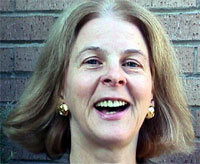Elaine Pagels - The Origin of Satan (1995)MP3(audio book) zeke23seeders: 17
leechers: 4
Elaine Pagels - The Origin of Satan (1995)MP3(audio book) zeke23 (Size: 461.16 MB)
Description  # An NBCC and National Book Awardwinning scholar of Gnosticism and early Christianity argues that the concept of Satan was central to the way apocalyptic Jews and the Christian Church saw--and treated--their enemies. When St. Paul declared that Christians were struggling with the powers of darkness and not with common flesh and blood, he was expressing an essentially cosmic attitude. Pagels (Religion/Princeton; The Gnostic Gospels, 1979, etc.) believes that this attitude led to a demonizing of human opponents and opened the door to a new kind of fanaticism and hatred. She argues that this dualistic cosmology originated with the Jewish Essene sect who pitted the ``sons of Light'' against the ``sons of Darkness.'' Pagels argues that the Gospels invoke this apocalyptic scenario against the Jews who opposed Jesus. As the Christian movement became increasingly Gentile, this demonizing came to be directed against pagan magistrates and, finally, dissident Christians. Fundamental to Pagels's argument is the thesis of many scholars that the Gospel accounts of Jesus' trial and execution, by seeming to place blame on the Jews rather than the Romans, actually reflect the situation of later decades when Christians were completely separated from Judaism and anxious not to provoke the Romans. Pagels sees the whole demonizing tendency as continuing down the centuries in anti-Semitism and in sectarian hatred generally. Her case is not entirely convincing. For instance, she seems to have forgotten that mass slaughter of enemies, e.g., the Canaanites, had already been advocated in the early Hebrew scriptures without any reference to Satan. Furthermore, her powerful quotations of Gnostic sources and the Pagan philosopher Celsus cause her to introduce theological questions that she fails to address in any depth, e.g., her assumption that orthodox Christianity was essentially dualistic and that the proscription of heresy was merely an issue of control. An attractive and scholarly, if not entirely satisfying, presentation of a stimulating thesis Elaine Pagels, née Hiesey (born Palo Alto, California, February 13, 1943), is the Harrington Spear Paine Professor of Religion at Princeton University. The recipient of a MacArthur Fellowship, she is best known for her studies and writing on the Gnostic Gospels. Her popular books include The Gnostic Gospels (1979), Adam, Eve, and the Serpent (1988), The Origin of Satan (1995), Beyond Belief: The Secret Gospel of Thomas (2003), Reading Judas: The Gospel of Judas and the Shaping of Christianity (2007), and Revelations: Visions, Prophecy, and Politics in the Book of Revelation (2012).[1] Pagels was born in California, the daughter of a research biologist.[2] Pagels began attending an evangelical church as a teenager, attracted by the certainty and emotional power of the group, but ceased attending church after the death of a Jewish friend in a car crash when other church members said that her friend had not been saved and would go to hell. Pagels said, "Distressed and disagreeing with their interpretation — and finding no room for discussion — I realized that I was no longer at home in their world and left that church."[3] Pagels remained fascinated by the power of Christianity, both for fostering love and for the divisiveness that can shadow the belief that one has received a divinely revealed truth.[4][5] She graduated from Stanford University, earning a B.A. in 1964 and M.A. in 1965. After briefly studying dance at Martha Graham's studio, she began studying for a Ph.D. in religion at Harvard University as a student of Helmut Koester and part of a team studying the Nag Hammadi library manuscripts. She married theoretical physicist Heinz Pagels in 1969.[6] They have two children, Sarah Pagels DiMatteo and David V. Pagels. Their son Mark died when he was six and a half years old.[7] Upon completing her Ph.D. in 1970, she joined the faculty at Barnard College. She headed its department of religion from 1974 until she moved to Princeton in 1982. Elaine Pagels Born Elaine Hiesey February 13, 1943 (age 71) Palo Alto, California, USA Residence United States Fields History of religion Institutions Princeton University Barnard College Alma mater Stanford University (B.A., 1964; M.A., 1965) Harvard University (Ph.D., 1970) Known for Nag Hammadi manuscripts Early Christianity Notable awards MacArthur Fellowship (1981) National Book Award (1980) National Book Critics Circle Award (1979) Guggenheim Fellowship (1979) Rockefeller Fellowship (1978) Howard T. Behrman Award for Distinguished Achievement in the Humanities (2012) Spouse Heinz Pagels (1939–1988†) Related Torrents
Sharing Widget |